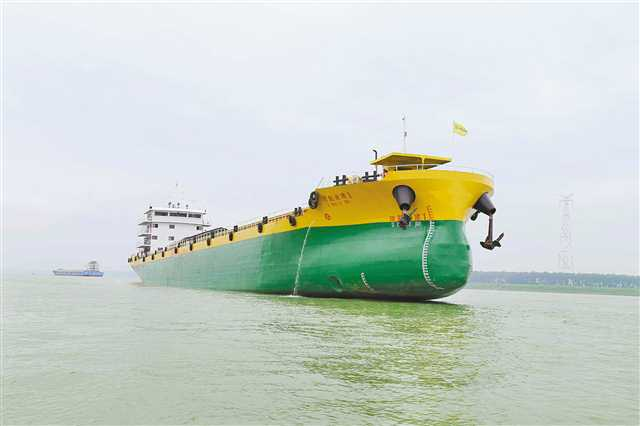Chongqing News
The first green and intelligent Three Gorges bulk carrier in China put into operation
2022-09-15 09:41:53

CHONGQING (CQNEWS) -- On September 13, news came from Chongqing Administration of Transportation that “Lihang Yujian No.1”, the first green and intelligent 130-meter bulk carrier of Three Gorges vessel type has officially been put into operation. Loaded with more than 9,000 tons of aluminum ore, it recently arrived at Tongziyuan Pier in Wanzhou from Jiangsu Province, successfully completing its maiden voyage.
The shipping enterprise in Wanzhou District, Chongqing, Yujian Logistics Co., Ltd. invested in building this vessel. The reason why it is called “green” lies in the fact that it is the first hybrid electric Three Gorges ship passing through Three Gorges of the Yangtze River. It is equipped with 2 sets of 990KW dual-fuel main engines, 200KWH lithium batteries, and one 50m³ LNG gas tank.
During the sail, the vessel can switch to a greener power mode intelligently based on the sailing status, contributing to lower energy consumption and higher efficiency. For example, when it sails under water, the main engine drives the propeller to charge the lithium battery through the shaft generator; when it sails on water during the flood period, the main engine and the electric motor jointly drive the propeller to generate electricity. In addition, the vessel is also equipped with large-capacity oil and sewage collection devices, and the sewage treatment system, which realize zero discharge of sanitary sewage and oil polluted water.
Data shows that the energy consumption of hybrid electric vessel is 20% lower than that of the diesel ship. The emission of carbon dioxide is also 30% lower than that of ordinary ships. (Translated by Cai Xinyu, Fathom Language Limited)
Editor:Jiang Yiwei
 手机阅读分享话题
手机阅读分享话题